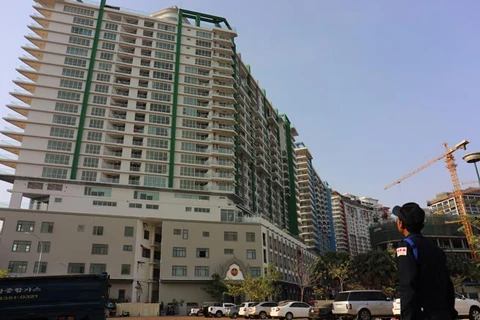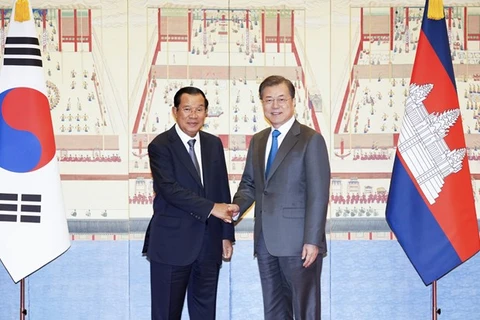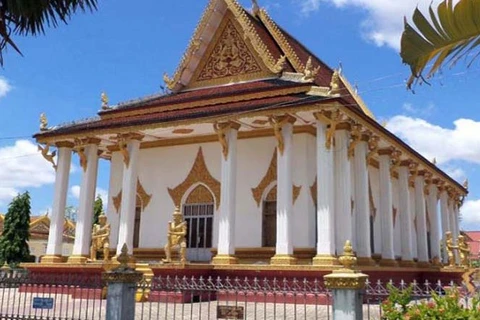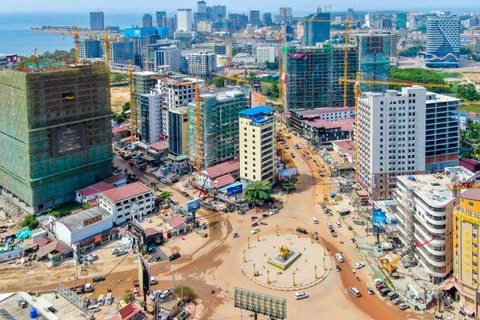 A boat travels along the Mekong river as high-rise buildings are seen in the distance in Cambodia's Phnom Penh city (Photo: AFP)
A boat travels along the Mekong river as high-rise buildings are seen in the distance in Cambodia's Phnom Penh city (Photo: AFP) Phnom Penh (VNA) - Cambodia is a fast-growing country in a slowing world, the World Bank (WB) said in its latest report.
According to the bank, although Cambodia’s growth is projected to slide to 7 percent, the country has remained a fast-growing economy in East Asia-Pacific.
Furthermore, its export growth has continued to stay high despite a slight decrease due to falling external demand.
In the sphere of garment and footwear, the US has emerged as a more important market for Cambodian exports that increased 23.2 percent in 2018 as compared with the 21.4 percent in 2017.
Meanwhile, the country’s total export value to the European Union (EU) surged 31.4 percent in 2018.
Claire Hollweg, a senior economist for Cambodia, pointed out that the country’s construction activities are ongoing thanks to upbeat domestic demand and the tidal wave of investment.
The tourism sector has also experienced an expansion. However, tourism in Siem Reap will need a boost as the province is experiencing a drop in the number of holidaymakers.
Unfavourable weather conditions have also affected rice productivity. The livestock sector (cows, buffaloes and pigs) dropped 6.3 percent while the poultry sector (chicken and ducks) saw a rise of 5.3 percent in 2018.
The WB has forecast that in 2020, Cambodia’s economy will remain strong thanks to high foreign reserves and government savings of more than 20 percent of gross domestic product (GDP).
The report, however, also points out a slowdown in such spheres as construction, garment and tourism this year./.
VNA























